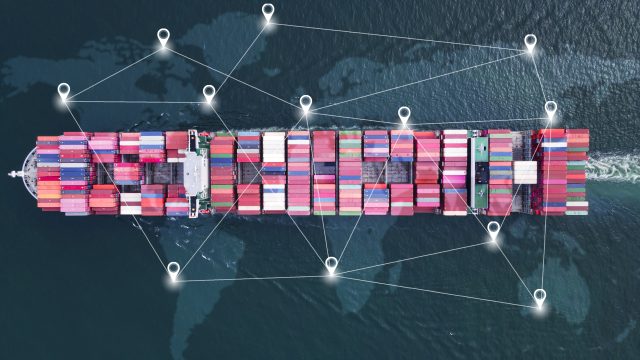This website uses cookies so that we can provide you with the best user experience possible. Cookie information is stored in your browser and performs functions such as recognising you when you return to our website and helping our team to understand which sections of the website you find most interesting and useful.
Losses caused by supply chain delays halved
A new report reveals that financial losses caused by supply chain disruption dropped by more than 50% in 2022 compared with 2021.

Last year, delays and disruptions to global supply chains had repercussions worth an average of US$82 million per company.
That figure may sound astronomical until you examine the equivalent number from the previous year, when logistical issues hit companies in the pocket to the tune of US$182 million each.
The Annual Global Supply Chain Report 2023 by Interos surveyed 750 companies with revenues between US$500 million and US$50 billion to glean the extent of the fall-out from supply chain woes on the firms in question.
These companies span the industries of energy, financial services, healthcare, government and aerospace, across the US, Canada, the UK and Ireland.
Results show that the pressure is alleviating across the board.
“The key takeaway is that people recognise the situation is better than it was, but that it will not go back to the way that it was in 2019,” said Interos industry analyst Tim White.
Speaking to the drinks business, Liv-ex’s head of operations, Dane Sunderland, said: “It’s an exciting time for the logistics industry. There is an overall sentiment that the worst is over, and while it won’t be completely calm waters ahead, now is the time to seize new opportunities and technology.”
Last year’s annual report found that 77% of companies planned to implement technology within 12 months to gain visibility into their supply chains. The study also revealed that only 11% of organisations were monitoring supplier risk on a continual basis.
Furthermore, before Russia invaded Ukraine, only 24% of organisations considered geopolitical risk “important” to their operations. Since the invasion, more than 56% considered it worth keeping a close eye on international relations, suggesting that companies are not monitoring important risks until it is too late.
A separate survey named The 2023 Supply Chain Barometer, which analysed 2,000 CEOs in the UK and US revealed that more than a quarter (26%) of CEOs were actively looking at onshoring and nearshoring some or all of their supply chains.
That number has now grown to more than four in ten (43%) of CEOs experiencing supply chain issues either already onshoring or considering it as an option in their future plans.
Related news
InterContinental Singapore launches Champagne drive-through
A 'challenging yet surprising' vintage for Centre-Loire in 2024

